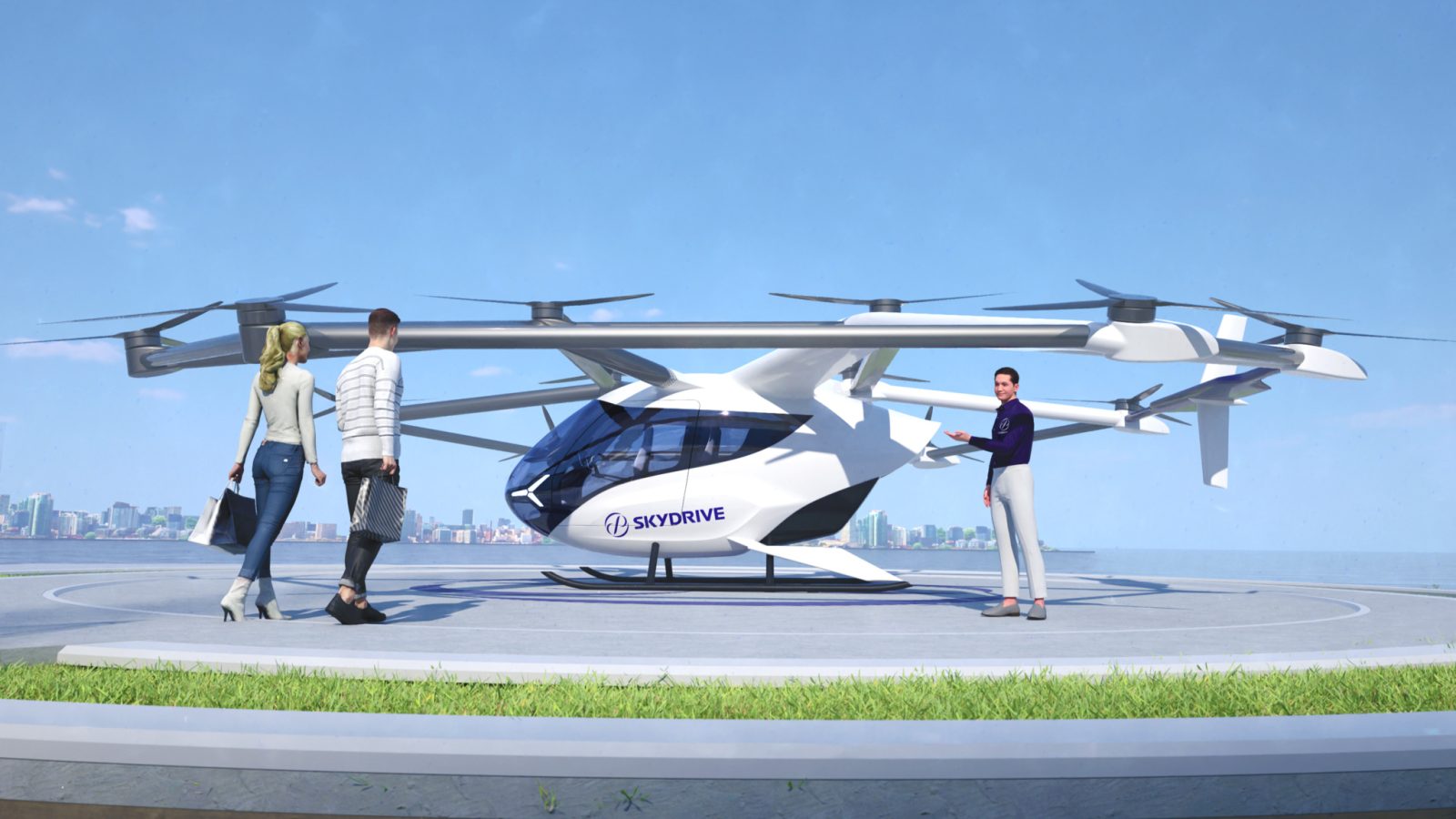
In a move reflecting the national interests in the race between next-generation aviation companies to bring advanced air mobility (AAM) vehicles to market, Japan’s SkyDrive has received 12.4 billion yen ($82.7 million) from the government to support the development of the startup’s electric vertical takeoff and landing craft (eVTOL).
SkyDrive’s work on its piloted two-passenger SD-05 eVTOL has secured it a reputation as one of Japan’s leading developers of next-generation AAM aircraft. With Japan already looking with enormous interest at eVTOL services like air taxis to alleviate the nation’s chronic road congestion, the government’s Ministry of Economy, Trade and Industry (“METI”) is granting SkyDrive $82.7 million to support its activity in “advanced technologies that address societal challenges.”
In an era not all that long gone, such state largesse of a company active in an emerging, high-stakes industrial sector would have provoked verbal and legal wars between US, European, and Japanese rivals brandishing unfair competition accusations. That, clearly, is not the case in AAM, despite leading actors pushing hard to obtain certification in time for initial eVTOL service launches in 2025 and 2026.
Indeed, several top startups preparing eVTOL craft around the globe have established research, testing, and tech adaptation relationships with their national government agencies and militaries. Japan’s support of Skydrive under its Small and Medium Enterprise Innovation Promotion Project (SBIR) is, therefore, another feature in that contest among leading AAM developers to tap a range of activities, aiding them to be among the first to bring their aircraft to market.
For example, Silicon Valley firms Archer and Joby both have solid partnerships with the US Air Force and NASA. More than one skeptical online wag, meanwhile, has intimated China’s recent aircraft type certification of EHang’s EH216-S was at least partly designed to give the company bragging rights (and operational advantages) as the first AAM aircraft maker to pass that enormous eVTOL milestone.
SkyDrive’s METI grant now becomes part of that wider global free market-state partnered patchwork.
According to the company’s announcement, the $82.7 million SBIR grant is designed for research developing SkyDrive eVTOLs for both passenger use, like air taxis, and diverse enterprise and government applications.
Significantly, however, the startup also notes the funding will support its efforts as one of roughly 10 companies around the world working to obtain aircraft certification. The first among those cleared for service, of course, will have a considerable advantage staking out turf and customers in the nascent AAM market.
“The SBIR program enables SkyDrive to accelerate its research and development efforts, focusing on improving the performance, safety, and efficiency of its eVTOL aircraft… and also to obtain Type Certification for commercial operation in the next five years,” the communiqué says. “It will also support the development of new technologies and systems necessary for the successful deployment of eVTOLs in Japan and beyond.”
SkyDrive has already commenced the certification process of its SD-05 eVTOL with the Japan Civil Aviation Bureau. It also began laying the groundwork for AAM authorization and sales of the plane in the US with its decision last February to open offices in South Carolina.
Prior to the MEITI research grant, the company raised $183 million in capital from financial backers, including over $65 million during a funding round completed a year ago.
FTC: We use income earning auto affiliate links. More.



Comments